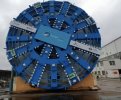That’s due to politics. Not money. VED and fuel duty alone brings in nearly double the amount of fare income from public transport. Tube fares and bus fares have been subsidised for too long. Time to increase them dramatically. Or cut services. Simple as.
Thanfully it looks like services will be cut rather than bleed the motorist.
However TfL don't receive any of those taxes from cars, as those feed into general (national) tax income rather than being linked to roads.
Vehicle taxes (especially the "tax" generated from speed cameras) are easy to avoid. If you wish to reduce your fuel duty taxes you can:
- walk/cycle more of your shorter journeys
- get a car which needs less fuel
- see if there are ways you can drive in a way which reduces the amount of fuel you use
One thing which I wish you well on its getting about, as if we see a significant fall in the availablity of public transport those people will still need to get about, if not by public transport then likely by car.
Whilst buses may not look busy, a bus with 8 people on is likely to be carrying 5 cars worth of people but taking up just 2 cars worth of road space when moving and requires nearly zero space to park (at least compared to the space those driving to those locations need).
The division between car driving vs other modes of travel is not a helpful one, as both are needed (in that few never drive or benefit from those who drive, however those that drive benefit from others not driving).
The Union Connectivity Report said that it's anticipated that road use will increase between 2015 and 2050 by 51%, without massive road building plans (which the government will need to significantly increase the level of subsidy) or new public transport provision (which the government will need to invest in) many roads will gridlock well before 2050 even without reducing the amount of public transport use which could come about from this current spat between TfL and Central Government.
However it should be noted that I say the above as someone who designs roads for a living and I can tell you that we are never going to be able to build our way or of car congestion because cars are such an ineffective use of the land we have available in this country.
Many suburban houses will have garages which are larger than most rooms in the house (a fairly reasonable double bedroom is circa 3m x 3m, most new garages should be 3m x 6m). Most shops are smaller than the car parks which serve them and the amount of road space (much is often used for the parking of cars at zero cost, or very low cost, to their owners) in any area is significant.
Not only that but cars are rarely used, even if someone were to drive their car for 2 hours every day (and relatively few do more than that, given that most people live within 20 miles of where they work) the car is used for about 8.4% of the time and most of the time most cars are carrying just one person (average car occupancy is between 1.2 and 1.4 depending on the reason for travel).
That's not overly surprising, given that according to market research undertaken by Chrysler in the 1990's SUV drivers are self-centred and self-absorbed with little interest in their neighbours or communities.
There's likely to be other sources for that but here's one:

www.walk.com.au
I may design roads, but few who love cars like what many of us in the industry have been saying for years. In part as the adverts for cars sell us the image of empty roads for us to drive about on without a worry in the world (if you don't belong me count the cars not being advertised in car adverts and tell me how many have more than a handful and compare that to those which have none).
Technology isn't going to help, self driving may gain is a little in capacity, but 50% more that 2015, not a chance.
Cars a useful tool, unfortunately too many see them as an extension of themselves. Yes they are great at getting you from A to B, however they don't change who you are (with the possible exception of isolating you from those around you).

